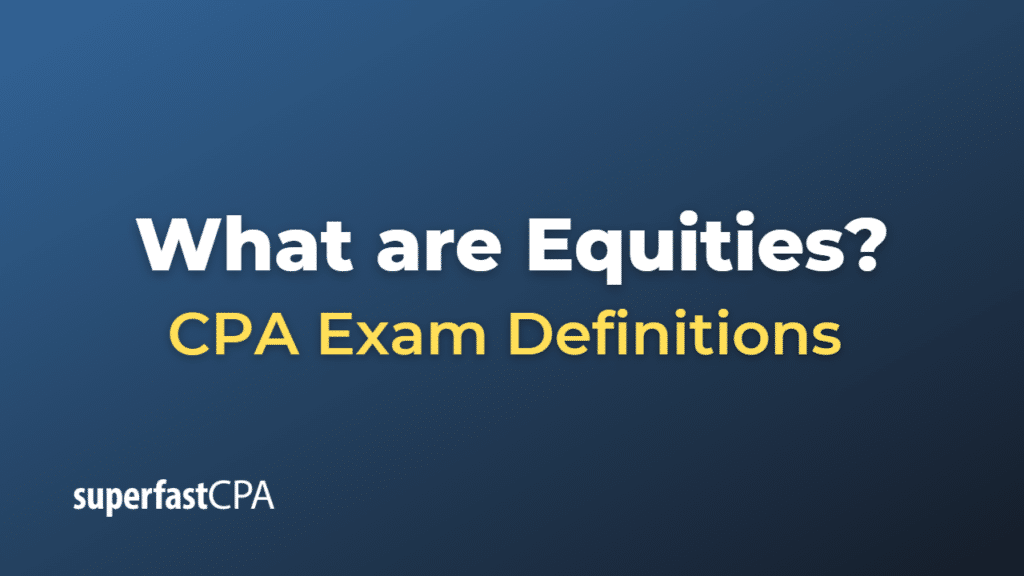Equities
Equities is a term used in finance that typically refers to shares or stocks that represent ownership in a corporation. This ownership gives shareholders a claim on part of the corporation’s assets and earnings.
Here are a few key points to understand about equities:
- Ownership: When you own equity (i.e., shares) in a company, you essentially own a piece of that company. As a shareholder, you have the right to a portion of the company’s assets and earnings proportional to how much stock you own.
- Voting Rights: Owning equities often gives you the right to vote on certain company matters, like electing members to the board of directors. This right can influence the company’s direction.
- Dividends: Some companies distribute a portion of their earnings to shareholders in the form of dividends. Not all companies do this, especially those in growth phases, where profits might be reinvested back into the company instead.
- Appreciation: Over time, the value of equities can increase (or decrease), providing potential capital gains (or losses) to shareholders. This change in value can be due to a number of factors including company performance, economic conditions, investor sentiment, and more.
- Risk: Investing in equities carries risk. There’s the potential for high reward, but also the potential for loss, including the total amount you invested. The level of risk can depend on the specific company, the overall health of the economy, market trends, and other factors.
- Equities Market: This is also known as the stock market. It’s the place where buyers and sellers trade equities. Major global equity markets include the New York Stock Exchange (NYSE), Nasdaq, London Stock Exchange (LSE), and Tokyo Stock Exchange (TSE).
Remember, while investing in equities can potentially bring substantial financial gains, it’s important to do your research or consult with a financial advisor because it also involves significant risks.
Example of Equities
Let’s say you decide to invest in a publicly-traded company such as Apple Inc. You believe that Apple will continue to innovate and grow, so you decide to buy shares of Apple’s stock.
- Purchase of Equity: You go to the stock market (via a brokerage account) and buy 10 shares of Apple stock at $150 per share. This investment costs you $1,500 (10 shares x $150 per share). You now own equity in Apple Inc.
- Ownership and Voting Rights: Owning these 10 shares, you are a shareholder and have a very tiny ownership stake in Apple. If Apple holds a shareholders’ meeting, you may have the right to vote (depending on the type of stock you bought), influencing decisions like electing the board of directors.
- dividends: If Apple declares a dividend of $1 per share, you would receive $10 in dividend income (10 shares x $1 per share) because you own 10 shares.
- Appreciation: Let’s say after one year, Apple stock’s price increases to $200 per share. Your investment’s value is now $2,000 (10 shares x $200 per share). If you decide to sell your shares at this price, you would make a profit of $500 (ignoring any transaction fees).
- Risk: However, if Apple’s stock price had dropped to $100 per share, your investment’s value would be $1,000 (10 shares x $100 per share). If you decided to sell at this price, you would have a loss of $500.
This is a very simplified example and investing in equities involves many more factors including timing, strategy, diversification, tax implications, and understanding financial markets and individual company’s financial health. As always, it’s a good idea to do thorough research or consult with a financial advisor before making such investments.












